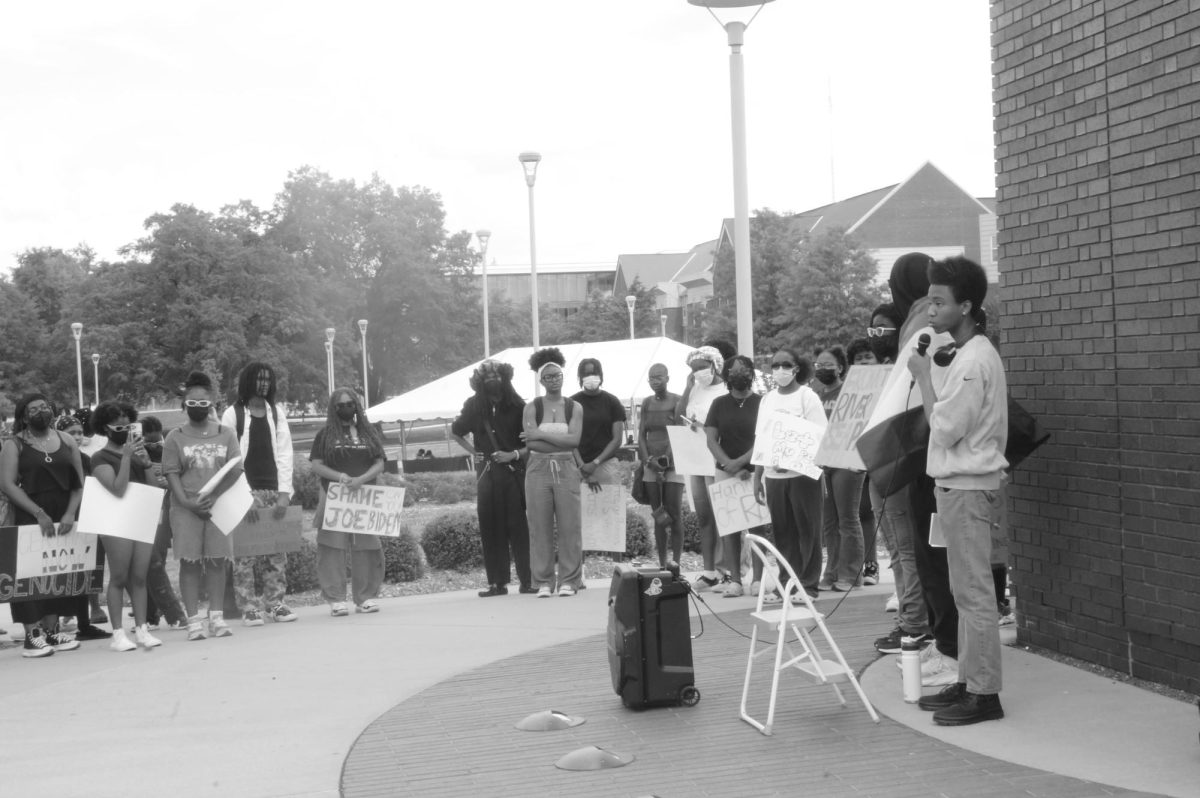Last year, three Guilford College students and one faculty member proposed a three-day curriculum for Guilford’s First-Year Seminar program. The curriculum was designed to introduce first-year students to racism and other forms of oppression and teach them how to combat it.
Since it was announced, the proposal has not yet been implemented in FYS classes.
According to Assistant Academic Dean Barbara Boyette, the classes spend at least one period teaching first-year students about diversity. The professors decide what material to cover and how to teach it.
First-year Elena Sippel described her experience learning about oppression in her FYS class.
“It was sort of like a ‘privilege walk’ where our instructor would say one thing; … he didn’t specify what was positive or negative, but if it (was something that) happened to you, you took a step forward or a step backward,” said Sippel.
Some students were further toward the front than others. Those closer to the back were considered “underprivileged.”
“It was cool to see how the people who were ‘underprivileged’ felt about it,” said first-year Laura Sippel. “Some people didn’t even realize … they were being underprivileged.”
Though Sippels’ class learned about oppression in a fun, interactive way, the class ended before they could finish the activity. Time has been an issue for FYS classes — they take place once a week for 1 hour and 15 minutes — so professors are limited on how much time they can spend teaching different material.
Systems of oppression are not exempt from the lack of time.
“Given the limitations of the one-credit format and the sheer amount of critical developmental information this course addresses, … the effort (to speak about racism) isn’t as thorough as it ought to be,” said Assistant Academic Dean for Career Development and Community Learning Alan Mueller in an email interview.
Another issue is how much the professors know about racism and oppression.
“Unlike faculty, who are experts in the area they teach, the FYE 100 instructors must cover a lot of topics with little expertise,” said Boyette in an email interview. “Our instructors are not necessarily experts in facilitating conversations around anti-racism and anti-oppression.”
Though racism and oppression are important subjects to teach students who are getting their feet wet at Guilford, there are other topics that are equally important to discuss such as ethnic identity, social class and heterosexism. According to Boyette, guest speakers may come in to speak about their fields of expertise – which could include systems of oppression.
This does not mean, however, that discussions of diversity should be restricted to one class.
“There shouldn’t be just one lesson about anti-racism,” said Jada Drew, director for educational initiatives and partnerships. “If we really want to create an environment that breathes multiculturalism and social justice, we need to make sure (discussions on anti-racism) is inclusive and not separate.”
Guilford is a diverse college. People who appear to be the same race may not necessarily come from the same country, share similar views or even be of the same ethnicity.
“(With) everyone coming from different backgrounds, who knows anything about (each other)?” said first-year Donzah Pitre.
Regardless of whether the three day curriculum is implemented, students are encouraged to take the extra step in learning about racism and oppression.
“We have a significant amount of important subject matter that must be covered in the FYE labs to help students make the transition to college,” said Steve Moran, director of student leadership and engagement.
Guilford offers plenty of on-campus opportunities to help students learn about racism and oppression. There are numerous “Understanding Racism” workshops available for students, staff and faculty to attend throughout the year. Students may also visit the Multicultural Education Department for more information on racism and oppression.






